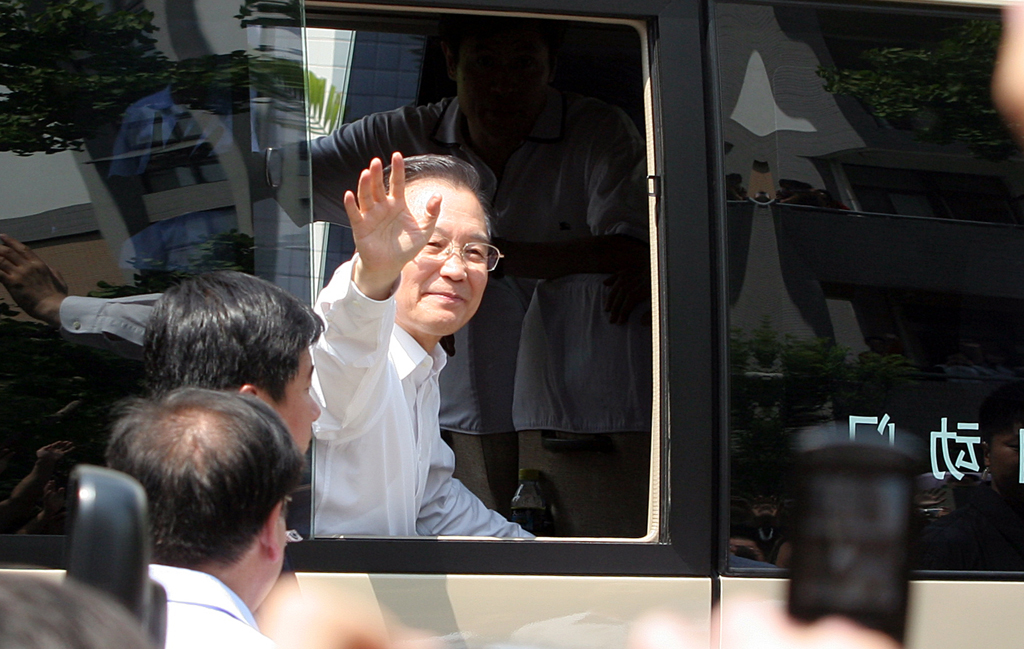China’s premier Wen Jiabao relished China’s economic triumphs but called for achievements and plans to be developed further in his farewell address.
After a decade in charge of the government, Wen delivered a “work report” to about 3,000 deputies, who were gathered at the opening of the National People’s Congress (NPC).
The NPC will eventually finalize a power transfer to Li Keqiang as Wen’s successor. It will also appoint a new Communist Party chief, Xi Jinping, replacing Hu Jintao.
Wen began his 100 minute long speech with a list of achievements during his time, comprising spaceflight, China’s first aircraft carrier, its own satellite navigation system, a high-speed rail network and the hosting of the 2008 Olympics.
Wen also warned China of facing social problems and of the nation’s “unbalanced, uncoordinated and unsustainable” growth.
“We must make ensuring and improving people’s well-being the starting point and goal of all the government’s work, give entire priority to it, and strive to strengthen social development,” Mr Wen said.
He mentionined air pollution, medical care and housing as some other key areas for improvement.
“We should unwaveringly combat corruption, strengthen political integrity and ensure that officials are honest, government is clean and political affairs are handled with integrity,” he added.
The controversy surrounding increasing wealth of party leaders at all levels has become a burning issue in China after foreign media reported the riches accrued by the families of Xi and Wen.
Wen promised to the world’s second largest economy more anti corruption efforts and better welfare provision.
Outside the hall, ordinary citizens were sceptical about the government’s promises.
Xian Lan, a pensioner, asked: “What is the point of all these wasteful, expensive meetings when there are so many poor people in China?”
The report to the annual session targeted 2013 economic growth of 7.5%, unchanged from 2012, with an inflation target of 3.5%, and promised to create more than nine million new urban jobs.
It vowed to tackle corruption and improve the quality of life as an annual parliamentary session to seal its transition to new leadership started.
However, the general public have expressed their concerns through the country’s vibrant social media about range of problems including corruption, pollution and skewed economic growth.
Outgoing premier Wen Jiabao also pledged to protect China’s “territorial integrity” as the government announced a military budget that was issued alongside his speech to modernise the world’s largest army amid mounting tensions.
The report highlighted substantial increases for areas including healthcare and the military, resulting military expenditure to reach a double digit hike, but the 10.7% rise – to 740.6bn yuan – is below last year’s increase, which was projected at 11.2% and ultimately came in at 18.5%.
China’s military budgets have been swelling in recent years and experts say the actual totals are usually considerably higher than the publicly announced figures.
China’s economy is a key driver of the global recovery but has been facing relatively less business activities at home and in overseas markets in past few years.
[one_half]China’s economy grew by 7.8 percent in 2012, which was the worst performance for 13 years. Wen said the target for this year was about 7.5 percent, “a goal that we will have to work hard to attain”.A separate government document laid down a 10.7 percent rise in defence spending to 720.2 billion yuan ($115.7 billion).
Zhang Xin, a political scientist at Renmin University in Beijing, described Wen’s speech as unremarkable, not making major announcements and mainly summarising the outgoing government’s achievements, which he said were limited.
[/one_half]
[one_half_last]
#wen Jiabao talks about 7,5 % growth and aims 9 Million new jobs a year. What a pressure the communist must feel. #China #NPC# Volkskongress
— Johannes Hano (@JohannesHano) March 5, 2013
[/one_half_last]”This report was very ordinary, nothing really stuck out,” he said. “I would describe the achievements of this government as moderate.”
Main image credit: sage@newsmth.org







